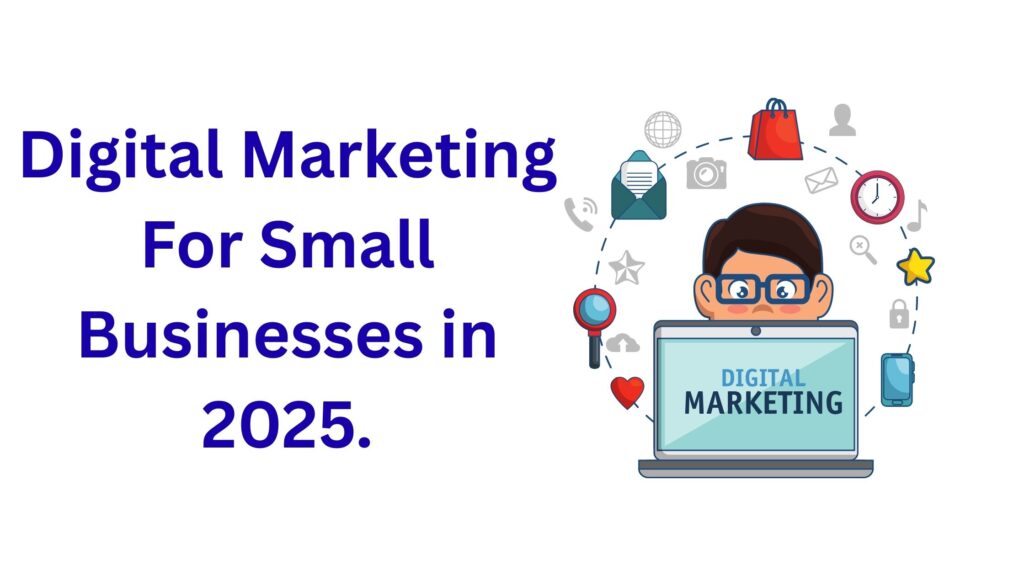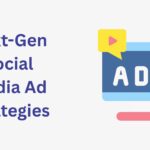Introduction
Digital marketing isn’t just a buzzword—it’s a survival kit for modern small businesses. With more customers searching, interacting, and buying online, digital marketing has become the fastest, most effective way for startups and local businesses to build awareness, generate leads, and outperform bigger rivals—all on a budget. Below are 14 convincing reasons every small business needs to invest in digital marketing today.
1. Precision Targeting: Reach Your Ideal Customer
Unlike broad traditional advertising, digital marketing enables pinpoint targeting based on age, gender, location, interests, and even online behavior.
-
Platforms like Facebook Ads and Google Ads let businesses show messages only to those most likely to buy.
-
Analytics tools allow businesses to refine audiences over time for better return on investment (ROI).
*Read more about how targeted digital ads level the playing field for small businesses: Salesforce Small Business Marketing Guide *
2. Cost-Effective and High ROI
Digital channels are often much cheaper than print, TV, or radio ads—and deliver proven results.
-
Businesses can run campaigns with minimal spend and pause or adjust them at any time.
-
Free tools (like Google My Business or basic email marketing platforms) help maximize exposure on a shoestring budget.
*Deep dive: Benefits of budget-friendly digital marketing *
3. Measurable Results with Real-Time Analytics
Track every click, visit, and purchase. Use dashboards and reports to see exactly which campaigns are generating sales.
-
Google Analytics, Facebook Insights, and other tools provide actionable data.
-
Constant feedback means business owners can stop wasting money on what doesn’t work and scale up what does.
*More on data-driven strategies: Google Search Central: SEO Fundamentals *
4. Level Playing Field against Big Brands
Small businesses today can appear alongside giants in search results or social feeds if their digital marketing is solid.
-
Clever social and content marketing can build trust and establish expertise.
-
Digital advertising lets smaller firms compete for attention without needing million-dollar budgets.
*Explore: How small firms compete digitally *
5. Flexible, Adaptable, and Instant Feedback
Easily tweak digital campaigns in response to performance, customer trends, or new ideas.
-
Adjust ad copy, targeting, or spend on the fly.
-
Respond quickly to market shifts—something traditional advertising simply can’t do.
6. Greater Brand Awareness and Online Presence
Most buyers check online before making a decision. Without a digital footprint, businesses may be invisible to potential customers.
-
Website, social media profiles, and directory listings help customers find and trust businesses.
-
Consistent digital presence increases perceived legitimacy and credibility.
*Learn more: Why digital visibility matters *
7. Build Stronger Customer Relationships
Digital channels let businesses engage, educate, and support customers at every stage.
-
Social media replies, email updates, and online support build loyalty and trust.
-
Instant communication helps resolve issues faster.
8. Personalize Marketing for Better Response
Send the right message to the right person at the right time.
-
Tools segment audiences and automate customized communications (e.g., birthday offers, cart reminders).
-
Personalized messaging increases open rates, click-throughs, and conversions.
*More: Getting started with audience targeting *
9. Maximize Local Reach with Global Potential
Reach neighbors and the world with the same tools.
-
Local SEO, Google Maps, and reviews help attract nearby shoppers.
-
Ecommerce and online ads can open new markets globally.
10. Boost Conversion Rates and Sales
Digital marketing helps turn browsers into buyers by reaching them when they’re most likely to act.
-
Tools like retargeting ads, landing pages, and optimized checkout flows guide prospects to purchase.
-
Conversion rate optimization is an ongoing process for sustained growth.
11. Gain Helpful Customer Insights
Analytics not only show what works but provide details about customer preferences, behaviors, and needs.
-
Use insights to refine products, marketing strategy, and customer experience.
-
Feedback cycles help small businesses adapt quickly.
12. Build Social Proof and Online Reputation
Online reviews, testimonials, and star ratings play a huge role in customer decision-making.
-
Satisfied customers can share positive experiences, attracting even more buyers.
-
Trusted reviews on Google, Facebook, Yelp, and industry platforms boost credibility.
*Read: Maintaining online brand credibility *
13. Combine Multiple Marketing Methods Seamlessly
Integrate email, social, SEO, and content campaigns for maximum effect.
-
Run coordinated campaigns for launches, promotions, or brand storytelling.
-
Shared content can be repurposed across several platforms for wider reach.
14. Stay Competitive in the Digital-First Economy
To keep up with shifting consumer habits, digital marketing is not optional—it’s essential.
-
Even traditional word-of-mouth is moving online through referrals, shares, and influencer marketing.
-
Continuous learning and agile strategies are the future for every growing small business.
Getting Started: Beginner Tips
-
Claim Google My Business: Free and essential for local visibility.
-
Start a Simple Website: Use WordPress, Wix, or Shopify for easy site-building.
-
Pick One or Two Social Channels: Don’t try to do everything at once—focus where your target audience hangs out.
-
Collect Reviews: Ask happy customers to leave reviews on Google and Facebook.
-
Set Up Basic Analytics: Google Analytics and Facebook Insights are free and user-friendly.
*Step-by-step beginner advice: Small Business Digital Marketing Guide – Webnode *
Conclusion
Digital marketing isn’t just for tech startups or big brands. Every small business needs to embrace online tools to attract customers, drive sales, and build a resilient brand in 2025’s digital-first landscape.
The journey starts small: claim online profiles, get listed in directories, launch a basic website, and connect on social channels. The sooner small businesses adopt digital marketing, the faster they’ll grow—while staying ahead of the competition.

